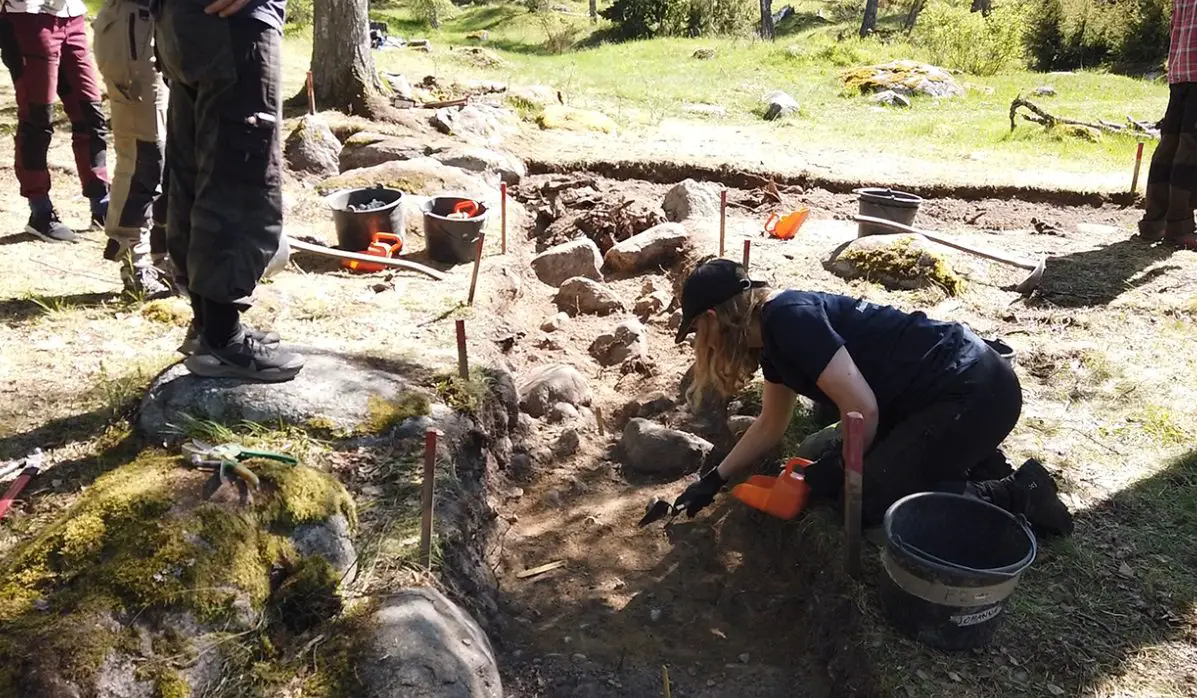Archaeologists excavating at Birka on the island of Björkö, Sweden, have discovered a Viking Age shipyard.
Birka, commonly referred to as Sweden’s first town, was established during the mid-8th century AD on the shores of Lake Mälaren. The town emerged as a major trading hub for merchants and tradesmen across Europe and beyond.
Excavations conducted by researchers from Stockholm University uncovered a stone-lined depression on the shore zone with a wooden boat slop at the bottom. The team also discovered large quantities of boat rivets, whetstones made from slate and woodworking tools, suggesting that the site was a Viking Age shipyard.

Sven Isaksson, Professor of Archaeological Science at Stockholm University said: “A site like this has never been found before, it is the first of its kind, but the finds convincingly show that it was a shipyard.
Through systematic survey, mapping and drone investigations, we can now show that Birka, in addition to the urban environment, also has a very rich maritime cultural landscape with remains of everything from jetties to boat launches and shipyards.”
Ships and shipping are characteristic of the Viking Age in the Nordic countries, both for warfare and for trade. One expression of Viking Age long-distance trade is the city-like trading posts that sprang up in the Nordic countries at the time.
Birka had a town rampart that surrounded the city for defence, legal, economic and social boundaries. Interestingly, the shipyard is located outside of the rampart, in addition to a boat landing site which is currently under investigation.
Header Image Credit : Shutterstock





